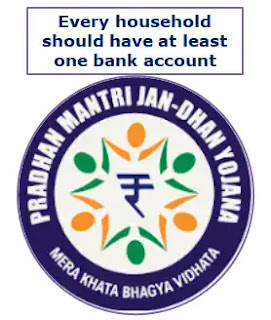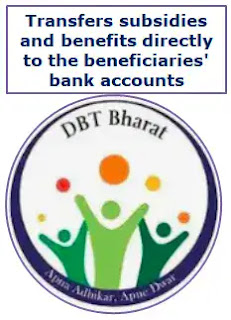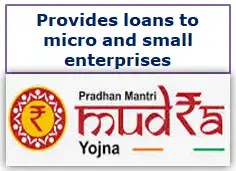The State Bank of India is committed to promoting economic empowerment among all individuals by engaging in initiatives that prioritize financial inclusion. This includes providing access to banking services for underserved and marginalized communities, offering affordable and accessible financial products, and implementing programs to improve financial literacy and education. The bank also works to support small businesses and entrepreneurs, particularly those in rural and remote areas, by providing them with the resources and support they need to thrive. Through these efforts, the State Bank of India aims to create a more inclusive and equitable financial system that benefits all members of society.
Financial inclusion is fundamental to the advancement of the economy. Its objective is to ensure that all members of society, including those who have been overlooked or marginalized, have equal opportunities to access financial services. In India, where a large portion of the population has traditionally been excluded from formal financial services, the government has implemented a number of influential initiatives. Here are the leading government programs that are propelling financial inclusion in India in 2024:
Pradhan Mantri Jan Dhan Yojana (PMJDY)
The PMJDY, launched in August 2014, aims to boost financial inclusion in India by providing widespread access to banking services. By 2024, over 47 crore accounts have been opened through this initiative, ensuring each household has at least one bank account. Notable features include zero-balance savings accounts, Rupay debit cards with accident insurance, and an overdraft facility of up to ₹10,000 per household.
Direct Benefit Transfer (DBT)
Launched in January 2013, the Direct Benefit Transfer (DBT) initiative aims to transfer subsidies and benefits directly to beneficiaries' bank accounts, eliminating middlemen, reducing corruption, and ensuring timely disbursement. Integration of Aadhaar with bank accounts has improved efficiency and transparency. As of 2024, DBT covers schemes like LPG subsidies, MNREGA wages, and scholarships.
Pradhan Mantri MUDRA Yojana (PMMY)
The Pradhan Mantri MUDRA Yojana (PMMY) was initiated in April 2015 with the aim of offering financial assistance to micro and small businesses. It specifically targets the funding needs of non-corporate, non-agricultural small/micro enterprises. The loans are categorized into Shishu (Loans up to ₹50,000), Kishor (Loans ranging from ₹50,000 to ₹5 lakh), and Tarun (Loans from ₹5 lakh to ₹10 lakh). As of 2024, PMMY has successfully disbursed more than ₹15 lakh crore to over 30 crore beneficiaries, playing a crucial role in promoting entrepreneurship and generating employment opportunities.
Stand-Up India Scheme
The Stand-Up India Scheme, launched in April 2016, is designed to promote entrepreneurship among women and Scheduled Castes/Scheduled Tribes by providing loans ranging from ₹10 lakh to ₹1 crore to at least one Scheduled Caste (SC) or Scheduled Tribe (ST) borrower and one female borrower per bank branch. The main objective of this initiative is to boost employment opportunities and empower these underprivileged communities through entrepreneurship.
Small Finance Banks and Payment Banks
The RBI launched Small Finance Banks and Payment Banks in 2014-15 with the aim of improving financial inclusion. These institutions are dedicated to offering essential banking services, with a particular focus on rural and semi-urban regions. Their services include savings accounts, fixed deposits, and small loans, designed to meet the requirements of small enterprises and low-income families.
Pradhan Mantri Jeevan Jyoti Bima Yojana (PMJJBY) and Pradhan Mantri Suraksha Bima Yojana (PMSBY)
The PMJJBY and PMSBY schemes were introduced in May 2015 with the objective of offering cost-effective insurance coverage. PMJJBY provides life insurance coverage of ₹2 lakh for an annual premium of ₹330, whereas PMSBY offers accident insurance coverage of ₹2 lakh for an annual premium of ₹12. These initiatives are designed to make insurance accessible to a wider audience, providing economic protection to those in need.
Atal Pension Yojana (APY)
Atal Pension Yojana (APY) was introduced in May 2015 with the aim of catering to the needs of workers in the unorganized sector by providing them with a secure pension plan based on their contributions. Upon reaching the age of 60, subscribers are entitled to a fixed pension amounting from ₹1,000 to ₹5,000 per month. As of 2024, APY remains committed to ensuring financial stability for countless individuals employed in the unorganized sector.
Contribution of SBI in Financial Inclusion Program in India (2024):
The State Bank of India is dedicated to promoting economic empowerment among all individuals by engaging in initiatives that prioritize financial inclusion. The Bank has been a pioneer in introducing the BC/CSP (Banking Correspondent – Customer Service Point) model, offering a wide range of banking services beyond cash withdrawals. Currently, CSP outlets provide access to 32 financial services. The Jan Dhan Yojana, Aadhaar, Mobile (JAM) trinity has revolutionized DBT delivery, with around 68 Crore credits disbursed in fiscal year 2024. This platform has integrated the unbanked population, promoting thrift and savings habits. Over 15 Crore BSBD/PMJDY accounts have been established, with total deposits exceeding C58,000 Crore. SBI leads in PMJJBY, PMSBY, and APY among Public Sector Banks, prioritizing female empowerment with over 50% female participation. With over 82,000 CSPs serving remote areas, SBI ensures inclusivity in financial services.
The State Bank of India has launched a portable device to improve banking services by making them more mobile. This TAB is being used by its CSP operators to offer doorstep banking to the public, with a focus on helping senior citizens and underserved communities. Additionally, AePS payment with IRIS authentication is now offered at CSP outlets, specifically designed for customers with worn-out fingerprints due to age or manual labor.
SBI has established 341 Financial Literacy Centers nationwide, organizing over 37,000 camps with more than 1.5 million participants. Additionally, the Bank has sponsored 595 Centre for Financial Literacy at the block level to raise awareness about financial products in rural communities. SBI has also set up 152 Rural Self Employment Training Institutes in 29 States/UTs, empowering rural youth with skills for sustainable livelihoods. Since their inception, SBI RSETIs have trained approximately 1.15 million candidates, with 74% successfully establishing self-employment ventures. SBI has actively participated in the Viksit Bharat Sankalp Yatra, covering more than 47,000 Gram Panchayats and Urban Local Bodies across the country, sourcing around 325,000 PMJDY, 700,000 PMJJBY, 1.19 million PMSBY, and 160,000 APY applications.
SBI has proven its leadership in digital financial inclusion by securing the top spot in the Best Digital Financial Inclusion category for Large Banks at the IBA Annual Banking Technology Awards for the fifth year in a row. This recognition underscores SBI's commitment to leveraging technology to provide comprehensive financial services to all its customers. The Indian government's unwavering support for financial inclusion is evident through various effective programs. These initiatives, offered by SBI and other Banks, cover banking, credit, insurance, and pensions, contributing to bridging the financial gap and fostering economic growth and stability. However, it is crucial to address challenges and ensure the sustainability of these programs for a more inclusive financial landscape.
Go to Index page
Disclaimer
The content or analysis presented in the Blog is exclusively intended for educational purposes. It is important to note that this should not be considered as a suggestion for investing in stocks or as legal or medical advice. It is highly recommended to seek guidance from an expert before making any decision.
You would also like to read:
- What are Cryptocurrencies, and what accounts for their increasing prominence?
- GST for Freelancers: A Complete Guide
- Priority Sector Lending
- EASE 7.0 of PSBs Reforms
- State Bank of India - Snapshot
- JIO, LIC, and SBI - Among the Top 25 Strongest Brands Globally
- Comparative Analysis of Business Segments of Top 3 Public Banks








